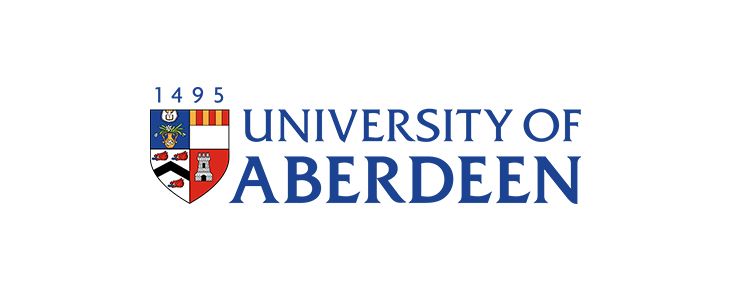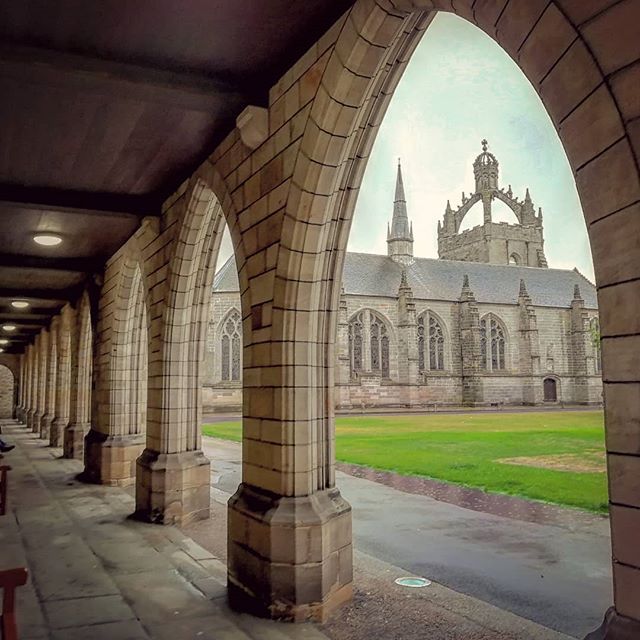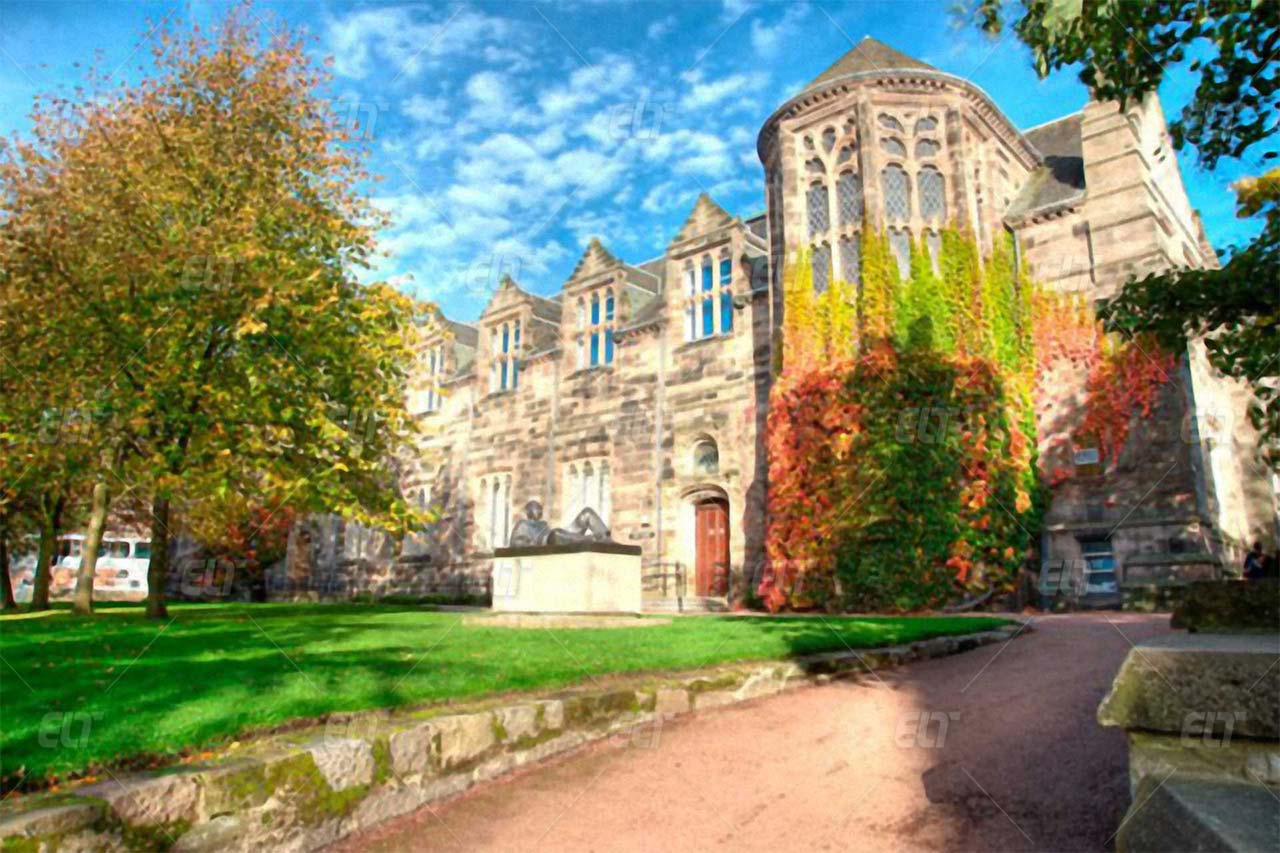Comment tout a commencé...
Tout a commencé lors de la séance d’information pour les séjours SEMP (Swiss European Mobility Programme) anciennement appelés Erasmus. Alors que je venais de commencer mon bachelor en lettres en anglais et en philosophie à Lausanne, je savais déjà que pour moi, partir à l’étranger était non-négociable. Je me souviens qu’à ce moment-là, j’avais la ferme intention de devenir enseignante du secondaire en anglais (et/ou philosophie ou français, ce n’était pas encore tout à fait clair). Pour pouvoir entamer la formation à la HEP, un des critères pour l’enseignement d’une langue étrangère est un séjour dans un pays dont c’est la langue officielle.
S’y prendre à l’avance
Mon conseil commence à partir de là : ne faites pas comme moi à attendre la dernière minute pour créer votre dossier de candidature ! Grave erreur de ma part, qui a causé sueurs froides ainsi que déplacements inutiles, frustrants et peu fructueux à l’université, et frustration. À Lausanne, pour pouvoir partir, il fallait présenter un dossier contenant une lettre de motivation détaillant trois universités possibles pour un séjour SEMP, des Learning agreements (ou contrats d’études) remplis et signés détaillant quels cours on souhaite suivre dans chacune des universités d’accueil. Ce magnifique monticule de feuilles était à soumettre pour la mi-février. Les contrats d’études sont spécifiques à chaque discipline étudiée et à chaque université : donc pour moi qui étudiais la philosophie et l’anglais, cela voulait dire 2 x 3 (donc 6 !) plans d’études à remplir, faire signer, et faire correspondre au plan d’études de votre université. Donc – au lieu de vous dire que vous attendrez de voir après la session d’examen d’hiver – commencez dès que vous formulez l’intention de partir. En effet, après les examens c’est une très, mais alors très mauvaise idée : d’une part, à la sortie d’une session d’examen, à quelques rares exceptions près, vous n’avez pas la tête à ça, ensuite après les examens, lors de l’inter-semestre, l’université se transforme un peu en quelque chose qui ressemble à une maison hantée saignée de toutes les créatures, étudiants et professeurs, qu’elle abrite en temps normal. Les professeurs ne sont pas forcément là, ce qui rend la course poursuite aux signatures de contrats mobilité une tâche remplies d’attente, de mails, de scans, de confusion, de frustration, de stress et de portes qui ne s’ouvrent pas malgré le déplacement jusqu’à l’uni. Bref : le dossier, c’est crucial, ça prend du temps, mettez-vous y dès que possible.
Partir pendant une pandémie
Mon expérience personnelle à ce moment-là était un peu teintée. En effet, j’ai soumis mon dossier le 15 février 2020… Puis, le jeudi 12 mars vient enfin la réponse, je vais pouvoir partir faire ma deuxième année de Bachelor à Aberdeen en Écosse. Quelle joie, quelle motivation pour se mettre au travail et faire de son mieux pour ce deuxième semestre. Le lendemain, alors que je venais de commencer un nouveau job à côté de mes études, j’apprends la terrible nouvelle : la Suisse ferme les écoles, les universités et une grande partie des lieux publics en raison de la pandémie du Covid. J’ai tremblé devant les nouvelles : personne ne savait vraiment à quoi s’attendre, et je ne savais pas à quoi m’attendre pour la suite de mes études, encore moins pour un échange en Écosse alors que les rues se vident et que chacun et chacune seul.e.s devant son écran essaie de comprendre ce qui se passe.
Une fois ce nouveau quotidien adopté, les différents étudiants qui vont partir à l’étranger tour à tour disent qu’ils resteront en Suisse, que leur université d’accueil a annulé les échanges, ou alors qu’eux ont décidé de ne pas partir car l’incertitude était simplement trop grande. Par chance (ou par miracle, je ne sais pas trop), Aberdeen a maintenu les échanges, et je n’ai pas reçu d’interdiction de partir de Lausanne non plus. Après un semestre derrière les écrans, dans ma chambre chez mes parents, après une session d’examens depuis la maison, et un examen en présentiel, masqué et dispersé dans une salle de sport du centre sportif universitaire, j’ai pu, avec une bonne dose d’insouciance ou alors juste un excès de témérité partir en Écosse pour la suite des aventures.
Arriving in Scotland

And here I am, in Scotland, landing in a country that also – like the rest of the world – struggles with the fight against Covid. So, my discovery of Scotland started with an isolation period of 7 days. Confusion already arose from there: how am I supposed to stay in isolation without having any means to order groceries online? Anyway, such challenges and small tidbits that make an exchange a spicy and memorable experience are bound to come along the way. So, anxious people, beware: you'll get to live an adventurer's life. And that's a good thing!
Let's turn to Philosophy now. So, as you understood from earlier on, I originally wanted to study abroad in the UK because of my English language and literature degree and my plans to become a teacher requiring a stay in an English-speaking country. However, the way philosophy is taught in England is quite different from what I experienced in Lausanne. Maybe it was reinforced due to Covid or their concern and care for the student's experience, well-being and thriving, but the courses are very well structured. In advance, you'll be able to access a syllabus that details everything you need to know about the course. What is the course's aim, what is required from you, who is the lecturer, how, when and who to contact, a detailed plan of each week's topic, the mandatory or primary reading and some suggested reading if you want to know more. To every anxious person like me out there, Aberdeen is a fantastic university for that. You know from the start where you are going. Concerning the books to read, I had books to buy for one of my four philosophy courses. In normal conditions, they would order a stock well ahead of time so that students could purchase the books before the beginning of the term; however, due to Covid, for me, that was a bit different. I had to find books for the second term online because after the first term, during Christmas, a covid variant spread and wreaked havoc in my study abroad curriculum. For my English language and literature classes, I could buy all the books at Blackwell's, the local university bookshop in Aberdeen, which was very convenient and less expensive than in Switzerland.
During the first term in Aberdeen, I attended two philosophy classes (and one English literature class). One was called "Controversial Questions"; it was a first-year course, and I took each week a different question to see how to answer it. For example, in the first week, we talked about meat consumption. Can we morally justify eating meat? We looked at a chapter of Singer's Animal Liberation. We had exciting debates during the online tutorials (which also encouraged participation, given that personal involvement is graded and contributes to the overall grade). We had, in total, 11 controversial questions that covered a wide variety of topics, ranging from meat consumption to the existence of God, all the way to Euthanasia. (It was all written in the title that questions were controversial, so you can hardly get more bang for your buck).
My other philosophy class was "Life, Death and Meaning". During this class, we also discussed each week one core reading that treated a different aspect of life's meaning and value, whether it has one etc. We examined various elements, like immortality and God, love, sex, and absurdity. I was thrilled that the course coordinator organized an extracurricular reading group about Charles W. Mills Blackness Visible: Essays on Philosophy and Race. This was an incredible opportunity to share and consider questions we didn't address before in my philosophy curriculum, like why is philosophy so white and male? Who decides what goes in the philosophical canon and what does not? The reading group took place on the incredible campus Aberdeen University offers, in an auditorium that suggested that we should hear each other out and learn to listen. There was a small microphone on each desk, which would switch on only once the previous speaker turned off their microphone. Maybe, philosophy is not just about saying, thinking about and considering many interesting things; perhaps it is also a synonym for listening to each other and considering each other as equals. Maybe it is about learning when to speak and when to shut up and leave room for someone else to express their thoughts.
Anyway, that was my first term in Aberdeen, which happened very partially on campus, but mostly in my student dorm room. I hope that if you go to Aberdeen University, you'll experience the campus more than I did because it is stunning. During my exchange, I would have enjoyed more direct, real-life interaction with my peers.

My second term in Aberdeen
The second term was a bit shakier – I got home for Christmas and planned to return at the end of January for the start of the second term, but then a variant broke out, and things just became quickly, really crazy. There are measures to be respected, of course. Still, I think it is fair to admit that that time was sheer madness. I got weekly emails contradicting each other as to whether I was allowed or not to return to campus. University decided after the Christmas break that the Spring term would happen, at least in the first half, remotely except for the students who could not work remotely (Indeed, not all of us have a chemistry lab readily available at home). Thus, I decided to stay for as long as it was unclear whether I was allowed to return to Scotland. But then, in February, came the next turn of events. Because the number of infections was still rising, Scotland decided to put a drastic measure in place starting mid-February. All people from abroad would have to quarantine in a hotel for two weeks. That was too expensive for me. There was a well-known loophole to the rule. You were not submitted to hotel quarantine when you entered the UK elsewhere and not directly in Scotland. So, returning to Scotland, I was "blessed" with having to change planes in London, thereby making my hotel quarantine just a bad dream (still, I had to quarantine for two weeks all alone in my student residence – not more fun, but less expensive).
Concerning my classes during the second term, I took one linguistics class, one English literature class and two philosophy classes.
I took a feminist philosophy class, which was a second-year class. During this course, we examined each week one aspect of gender equality and the arguments that feminist thinkers proposed. We covered, of course, some disturbing topics, like sexual harassment; however, the teaching staff, as all the teachers I had in Aberdeen, always offered trigger warnings and encouraged us to respect our boundaries. They are very thoughtful about their students' well-being when addressing difficult issues, and I appreciate this sign of respect and encourage Swiss universities to emulate this. This course made also pierced my philosophy bubble: quite naively, I thought so highly of philosophy that I was shocked and disgusted by some practices, sexist behaviours, and misogyny, as some of the readings of the course concerned sexual harassment in philosophy departments themselves. Sexual harassment does not stop at the gates of the university. I also made some fascinating discoveries, like the question of gender in sports, epistemic injustice, and unconscious bias. This course marked me a lot and gave me a new direction in my studies.
The second class I took was called "Introduction to Ancient Chinese Philosophy". During this class, we discussed the vast philosophical tradition of ancient China, those texts that are usually taught in the philosophy curriculum in Switzerland or at least not in the early years of the Bachelor. This was a third- and fourth-year course (Scottish students graduate after four years), there was a lot to read, and it definitely required more effort from me because I was not at all familiar with the subject, completely ignorant of Chinese and Chinese history and traditions. However, the course was made to help us; no need to be a Chinese speaker; there are translations available; we just need to remain aware that they are translations and can from one translation to another vary. I had a great time exploring those new topics and recommend stepping out of one's comfort zone during an exchange rather than trying to stick closely to the study plans of your home university.
Considering an exchange – some final thoughts

The discovery of new things, precisely, is the paradox of the exchange programmes: you go to a foreign university to learn and discover new things and new ways of approaching the subject you are studying, while the home university requires you to link the course you are following overseas to the curriculum they offer, in my case Lausanne. So, of course, it will be different! That's the point of going away in the first place! So no worries are needed there; it is weird, but it is a normal process: you will have a different experience and background from those who stayed at your home university, but that is ok! You did not waste your time; you got the privilege of seeing something else, broadening your horizon and discovering a new passion, like philosophy in English; why not?
I recommend a year abroad for those seeking a personal and academic challenge. You'll get to know more about the subject you are studying through new approaches, but you'll also learn more about yourself and discover new places, make a lot of friends and reinvent yourself throughout your stay abroad – a new you awaits at the end of the road of your year abroad.
